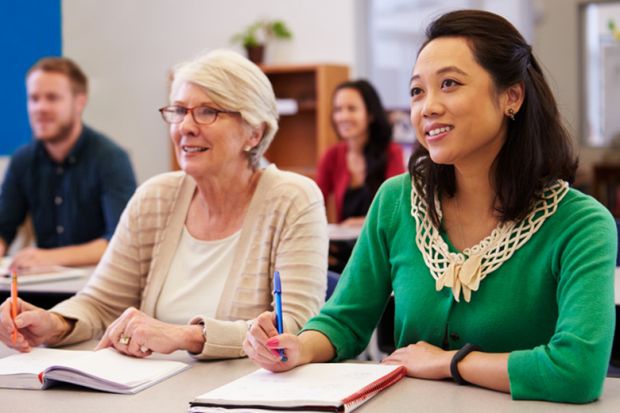
Women access to education has been on a devastating stats for years. Though many might concur that evolutions have taken over as women are no longer subjected to the social stigmatization they used to when educated. However, a considerable number of women aren’t educated or are under-educated.
With hundreds of thousands only find a way back to school after scores of years of furlough and absence. At what gain and whose lost? This might be the rhetorical question you might be lost into if you’re so empathic about the current situation as we do. This is what women are facing in some parts of the world.
To the westerners, this might be appalling, but the easterners won’t claim naivety, thus, in this subject matter. This seemingly cleaves a bond with the middle east and some part of the European countries. On Tuesday, our team traveled to Turkey to pry into the matter.
And, here the Council of Higher Education (YÖK) has recently sparked heated debates by allocating more than 20,000 quotas in associate and undergraduate programs specifically for women over the age of 34 who have not previously received an undergraduate education.
While this initiative aimed to provide educational opportunities for women who had not had a chance to pursue higher education earlier in life, the outcome has led to considerable controversy.
Over 17,600 women have benefited from these newly allocated quotas, but the controversy centers around the placement results. Many women over the age of 34 were able to secure spots in prestigious universities, such as Boğaziçi and Middle East Technical University (ODTÜ), despite having lower entrance exam scores than traditional undergraduate applicants.
In response to these debates, some of the women who gained entry to these top universities are speaking out, emphasizing their genuine intentions and qualifications.
Makbule Karagöz, aged 50, shared her story, explaining, "The reason I took the exam was to complete my unfinished dreams because I got married before I finished high school. Now, I am pursuing my dream by enrolling in the sociology department."
Mehtap Özsoy Çakmak, 46, who had to leave Anadolu University's economics department years ago, was able to secure a spot in ODTÜ's philosophy department thanks to the additional quota.
She addressed concerns from her younger peers, saying, "I get along well with young people, but some students at the school think that we are taking advantage of others because they don't know the details about the quota for women. I have explained the situation to them many times, but they are not convinced."
Another woman, 50-year-old Çiğdem İnceoğlu, highlighted the challenges of keeping up with younger students but expressed her determination to continue her education. She shared her motivation, saying, "I took the exam to avoid sitting at home in retirement."
For her part, 37-year-old Hatice Özkaya said studying psychology had always been her dream. She explained that she had started studying for the exam even before the announcement of the additional quotas and had faced challenges such as a lack of dormitory and scholarship opportunities due to her age.
Alev Demir, aged 35, shared her experience of taking a private course to prepare for the exam and is currently studying International Relations.
"I always had the regret of not being able to study at university. When I had the opportunity, I didn't want to miss it. Now I can say that I started life from scratch," she said.